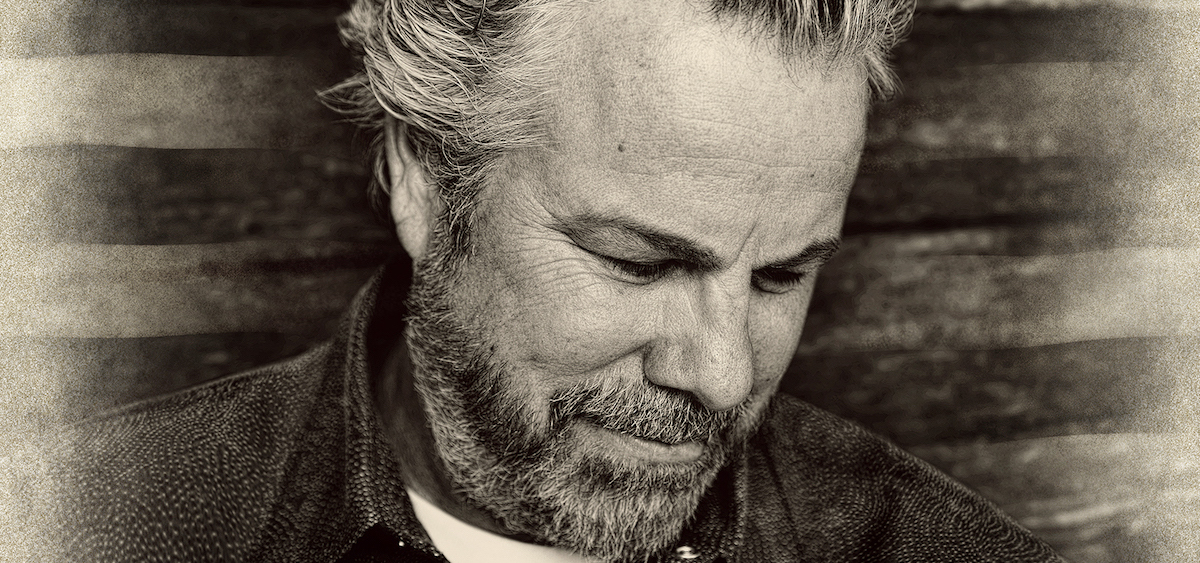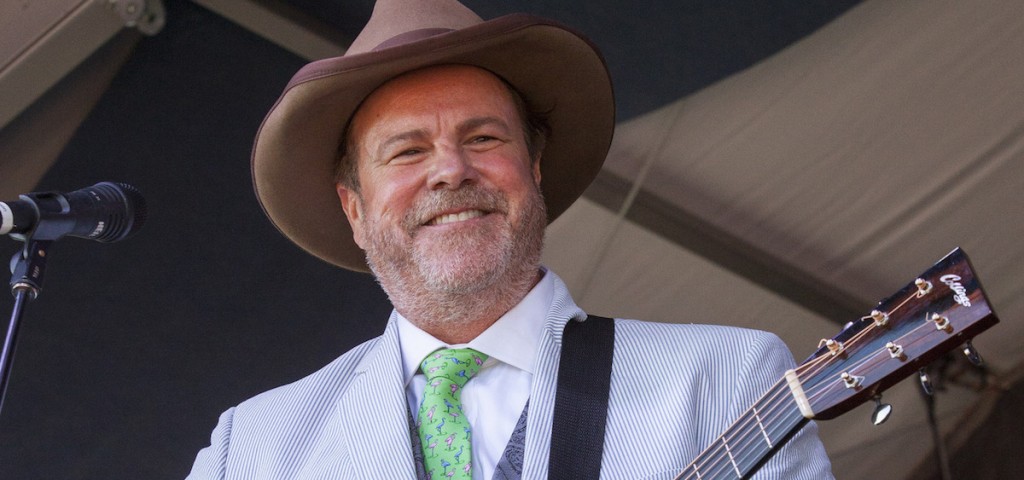Culture

The Trouble With Hippie Capitalism and More: A Chat With Robert Earl Keen
By: Emily Votaw
Posted on:
Robert Earl Keen has been crafting his unique brand of country music since the early ’80s. Whether singing tongue-in-cheek tunes about what Christmas is really like in the Southern reaches of the country, or writing songs covered and popularized by the likes of The Dixie Chicks, George Strait, Nanci Griffith and others; Keen does so in his very own way.
WOUB’s Emily Votaw spoke with Keen about the upcoming release of Live Dinner Reunion, the tribute album to the artist’s legendary and career-defining No. 2 Dinner, his wacky holiday tour and the problem with “hippie capitalists.”
On Sunday he’ll perform alongside Lyle Lovett in Ohio University’s Templeton-Blackburn Alumni Memorial Auditorium at 7:30 p.m. For information on tickets, visit www.ohio.edu/performingarts.

WOUB: Could you tell me a little about Live Dinner Reunion, which due out next month?
Robert Earl Keen: Well, 20 years ago, 21 now — we recorded No.2 Live Dinner in this honkytonk called John T. Floores Country Store, outside of San Antonio. It was a pretty popular place; some of the classics played there frequently, like Willie Nelson, Ray Price and Merle Haggard. I basically talked my way into playing there. In 1995, I made a live record there because I had more or less wanted to archive what the band sounded like at the time. Soon after I left Sugar Hill Records, and I gave the live recording to the guy who ran it because I was really fond of him, and I felt kind of bad about leaving the record label. He put it out and it turned out to be my game changing record. It made a big difference in my career. Fast forward 20 years and we did a reunion of that record – and we didn’t just do the same songs and everything, we went back and recorded a lot of songs with a lot of my friends; and we had a huge audience, over 5,000 people. It was a big night. It wasn’t put together by any label or anything; it wasn’t a marketing idea – I wanted to pretty much do what I wanted to do with the first one: document how the band sounded.
WOUB: You have a lot coming up. I wanted to ask you in particular about the Merry Christmas from the Fam-O-Lee Tour.
REK: I recorded the song “Merry Christmas From the Family” years ago, just to amuse myself because I grew up in Houston, TX and there’s nothing in Houston that is remotely akin to anything you ever hear in a Christmas song. So I made my own joke song, and it sort of became the song for all the people who felt like they don’t relate to images like chestnuts roasting or snow falling. The song became really popular and consequently we became what I considered the ‘Jimmy Buffett of Christmas time,’ since people would just hire us to hear that song. Five years ago, I put together a full-blown Christmas show with this huge set, and we’ve been doing it every year since, changing the theme every time. This year the theme is ‘Country Gold Christmas,’ and each band member is going to pick an iconic country performer and sing one of their songs. We’ll do our songs and play a couple Christmas songs, as well.
WOUB: I was curious whether you could mention any of the special guests you’ll have on the tour this year?
REK: You know, I don’t have all that together right now, Emily. I’m not a long distance planner. I sort of get up close to it and that seems to work. Sometimes I’m a little bit behind the eight ball; but at this point I’ve just been working on the set and the music we’ll do.
WOUB: Understandable! I’m also itching to ask you about your involvement with the NARAS. I wanted to get your take on the way in which music is consumed these days.
REK: You know, my theory about music is that every 30 years there’s big change, going all the way back to the invention of the phonograph at the beginning of the 20th century. All of a sudden people became enamored with the idea of listening to their phonographs — their furniture-like system. And then, say, in the ‘30s, all of a sudden there was this flood of recorded music: everything from classical music to Broadway show tunes, and then country music really hit the scene in 1925. In the ‘60s, you went from this 78 rpm LP to a 45 rpm single, and the format of music changed. When singles were big, all the songs were really short, like two, three minutes. In the ‘70s and ‘80s, songs got bigger – and then CDs came out, and before long the Internet took over. And when that happened, it was not just an every-30-year change, it was full blown tsunami. Everything got turned on its head. Everything changed in terms of how things get paid out to musicians, which is where my interest lies. There are lots of people who make their living off of music – and I’m not sure why, but for some reason songwriters have always been the last in line to get paid. Right now streaming services aren’t paying enough for music made by people who have given their lives to making music. So I’m on the side of the down with the man and up with the people.
WOUB: Do you think there will be a breaking point? There is just such a mass consumption of music that is free or basically free.
REK: You know, that’s a good question. I do believe that it will finally settle down and people will reach some compromises, but musicians need to stick up for themselves and get behind what they believe in. A lot of this is what I like to call “hippie capitalism.” And while I’m totally on the left side of everything – in the 60s there were these guys who were full blown capitalists but they preached about peace and love all the time – even though they would take your money. The streaming services of today are sort of the hippie capitalists of today: they say that everybody should have access to free music all the time, but they’re making a pile of money off of the whole thing. I think they need to share that money a little bit.
WOUB: Could you talk about the show that you’re playing with Lyle Lovett at Ohio University?
REK: Yeah — that’s a really fun thing. Lyle and I have been friends for years, and fortunately for me, Lyle has included me in his touring. We sing songs, trade stories, talk about where the different songs come from, make some corny jokes; and it’s a big fun thing for everybody. We did it some the early part of the year and it was so successful we extended it in the fall and now we’re bringing it to Ohio. I’m really happy to be coming to Ohio – I’ve always really liked the state; but I also had a really good friend that I lived with in Austin who was from Barnesville, OH, and he was a huge influence on me musically, and just as a person. People should come out to the show, this show is really good. Everybody says everything is good these days, but with this, I’d stake my life on it.

